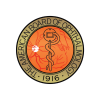During each examination appointment, candidates will meet one or more experienced, board-certified ophthalmologists referred to as examiners. Examiners are responsible for presenting each clinical case and evaluating candidates’ handling of the required data acquisition, diagnosis, and treatment.
Examiners are volunteers who have been ABO-certified for at least three years, are actively participating in Continuing Certification, and have been reviewed and approved to represent the ABO in the oral examination process by the Board of Directors.
To become an examiner, volunteers begin a mentoring program that requires shadowing an experienced examiner prior to giving their first examination. Examiners are required to participate in an extensive training program that addresses how to administer an examination, how to score an item, techniques for supporting candidates throughout the exam day, technical requirements and exam day troubleshooting, and a detailed review of each clinical case on the exam. Examiners are evaluated on each of these key training elements after each exam and provided with a performance review and suggestions for improvement, if necessary.
Examiners also complete a bias training session. The session covers conscious and unconscious bias in the context of making judgments about candidates’ performance on an oral examination. The training includes reflective exercises related to cognitive biases and sets expectations for standardization in exam delivery and scoring. To further prevent bias, examiners are not permitted to examine candidates they have trained, interviewed, worked with, or know in any professional or personal capacity. Candidate and examiner assignments are carefully considered in advance with this rule in mind.
Examiners are not compensated for their role and provide their time and expertise out of a deep commitment to the mission of board certification.
Need more help with this?
Don’t hesitate to contact us here.



